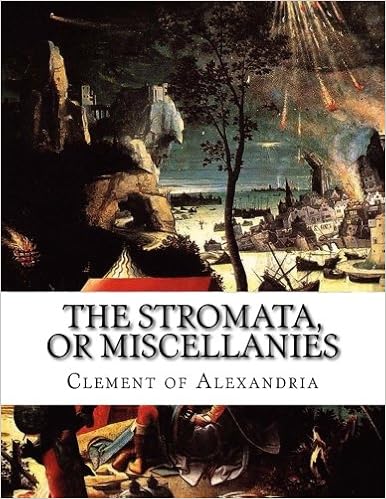Clement spends much of the work referencing Greek and Roman philosophy, in addition to various biblical passages. The latter, he sometimes engages with by offering analogies to show how a given biblical idea fits within a moral concept of Christians (e.g., clean and unclean meats as symbolic of different kinds of thinking). The former, he spends much time referencing as inferior to Christian thinking, as antithetical to it, and as a predescessor to it. Through philosophy, Clement claims at some points, God brought Gentiles to a knowledge of the truth and of Jesus, just as through scriptures were Jews brought to such knowledge. But being a miscellany, Clement's views differ from section to section and purpose to purpose.
Book 8, being the most freshly on my mind, shows something of how Clement's thinking was in many ways more philosophically disposed than biblically. That book focuses not on anything religious but on ideas about symbology, writing, words, and names--how language came to exist as it does.







No comments:
Post a Comment